It is with much gratitude and admiration that we celebrate the jury alumni members of the Core77 Design Awards.
- All Categories
- A/V & Photography Equipment
- Apps & Platforms
- Branding & Identity
- Built Environment
- Commercial Equipment
- Consumer Product
- Consumer Technology
- Crowdfunding
- Design Concept
- Design Education Initiative
- Design for Social Impact
- Emerging Technologies
- Furniture & Lighting
- Gaming Accessories
- Health & Wellness
- Home & Living
- Interaction
- Lifestyle Accessories
- Open Design
- Packaging
- Personal Accessory
- Robotics
- Service Design
- Speculative Concept
- Speculative Design
- Sports & Outdoors
- Sports & Recreation
- Strategy & Research
- Sustainability
- Tools
- Tools & Work
- Toys & Play
- Transportation
- Visual Communication
Jury Alumni
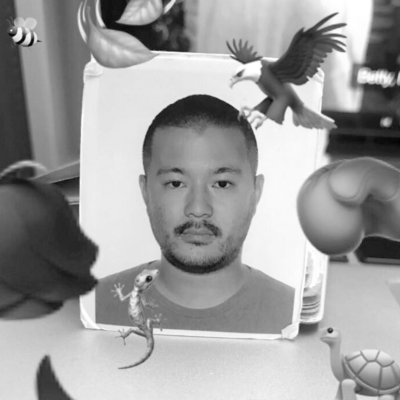
Dong-Ping Wong
Founder, Food New York
2019 Built Environment Jury Captain
Before starting FOOD in 2018, Dong was a founding partner of Family New York with Oana Stanescu, which led the designs of contemporary art museums in Mantaa, Finland and Maribor, Slovenia, stand-alone stores for Off-White c/o Virgil Abloh in New York, Tokyo, Singapore and Hong Kong, the stage design for Kanye West’s Yeezus Tour, and residential projects for him and his family in Paris and Los Angeles.
Dong's work has been featured in publications including the New York Times, Wall Street Journal, Fast Company, Complex and Wired and has been awarded the Diamond Award for Engineering Excellence, the New York Design Award for Best Young Practice and was nominated for the INDEX Awards in Copenhagen. Prior to starting his own practice, Dong worked as a designer at OMA and REX in New York and EHDD in San Francisco, specializing in public, cultural, and hi-density mixed-use buildings.
Dong earned his Masters of Architecture from Columbia University and his Bachelor’s from UC Berkeley.
Cass Nakashima
Associate, FOOD New York
2019 Built Environment Jury Member
Cass Nakashima is an associate at Food New York working as a Project Lead for a renovation of a 2500sf residence in Soho, new galleries for Milk Studios, renovation of Need Supply Co. flagship, residences for Kanye and Kim Kardashian West in Los Angeles and the Services Building of + POOL.
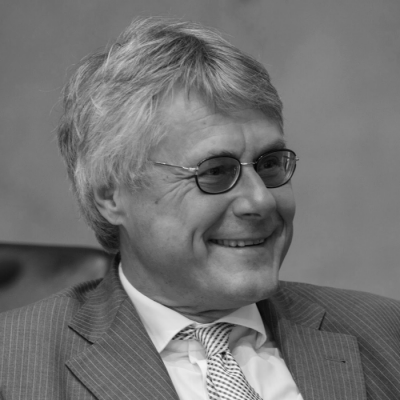
Hartmut Gaßner
Founding Partner, Gaßner, Groth, Siederer & Coll.
2016 Built Environment Jury Member
Hartmut Gaßner is a founding partner of Gaßner, Groth, Siederer & Coll. He focuses on renewable energy law (photovoltaic, geothermal, wind power projects), nuclear law, emissions trading, Stadtwerke, PPP procurement, recycling business, ministerial and municipal consulting, associations and policy advice. He studied law in Berlin, was a research associate of the Bundestag Greens (Otto Schily, Flick committee of inquiry), and had a traineeship in Berlin, admitted in 1987 before establishing GGSC.
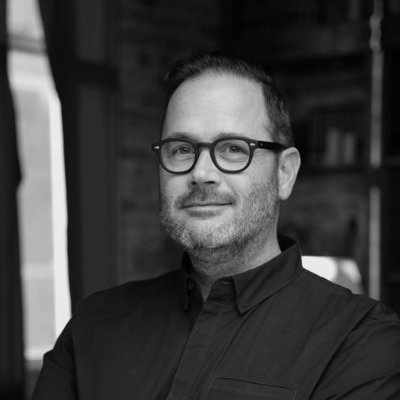
Erich Fox
Producer, Executive Team Director, Gentilhomme
2024 Built Environment Jury Captain
With nearly three decades of experience, Erich stands as a seasoned professional in the dynamic realm of technically challenging projects. His extensive portfolio boasts successful leadership across the globe, encompassing diverse ventures such as theme-park attractions, large-scale exhibits, experiential and environmental activations, restaurants and public spaces.
Erich's expertise lies not just in project execution, but in his role as a guiding force. His primary focus is on meticulously navigating clients and partners through the intricacies of project planning. Whether it's aligning the design vision or establishing a robust foundational project plan, Erich ensures precision and alignment in every step of the process.
Based in the vibrant city of Toronto, Erich finds joy in the simple pleasures of life. Outside the dynamic world of project management, he shares his home with his wife and dogs. Erich's leisure activities reflect his creative spirit, indulging in drawing and model-making. His green thumb finds expression in gardening, and he embraces an active lifestyle by embarking on long-distance bicycle rides. Beyond the boardroom, Erich's passions reveal a well-rounded individual with a zest for both the creative and the outdoors.
Judith Baehner
Founder, Het Groenlab
2022 Built Environment Jury Member
Judith Baehner, concept maker and plant-architect, is the founder and owner of Het Groenlab. Fascinated by nature and the relationship of humans with nature. she is a plant-guru, plant-poet, designer, and teacher. She combines her experience as a plant expert with being a stylist and editor for magazines with her passion for plants to create inspiring and inventive green experiences. Her designs, articles, books, pictures, videos, lectures, workshops, and plantings are stylish and personal. Judith wants to inspire you to love all things green as much as she does. She wants to show you how easy it is to grow plants and enjoy them. All across Europe she leads projects, talks and workshops in which you can really feel her passion and her story. Alongside the work in the ‘lab’, Het Groenlab helps individuals and companies create green living and working spaces for a happier and healthier lives. The plantings made by Het Groenlab are about cultivating personal spaces, and are planted with love and care.
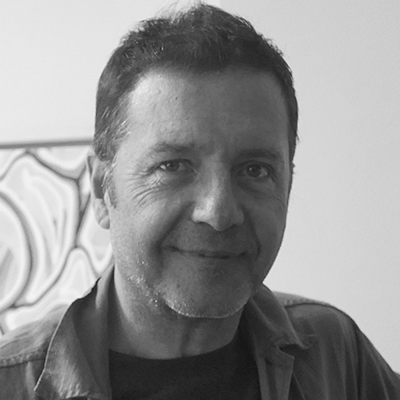
Charlie Gepp
Founder, INTENTIONALLY BLANK
2018 Built Environment Jury Member
Charlie Gepp is a patron and avid collector of Art and Design, mainly modern and contemporary. He is co-founder of Melissa Shoes USA, the leading global manufacturer of jelly shoes and a pioneer in forging design collaborations with Architects, Artists and Designers such as Zaha Hadid, Mariko Mori, Sebastian Errazuriz and Muti Randolph. Charlie Gepp is also founder of INTENTIONALLY BLANK, which acts as agent and provides coaching and strategic advice to a stable of artists and designers. He is also actively involved with Creative Time, Mariko Mori’s FAOU Foundation and the Storefront for Art and Architecture.
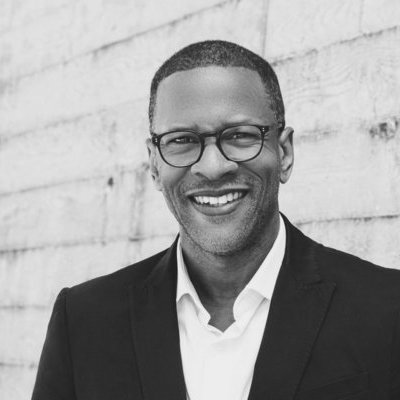
Shawn Rickenbacker
Assoc. Professor, Architecture, CCNY Spitzer School of Architecture, J. Max Bond Center for Urban Futures
2023 Built Environment Jury Member
Shawn L. Rickenbacker is a trained architect, urbanist and urban data researcher. He is currently the Director of the J. Max Bond Center for Urban Futures where he directs the Center’s sponsored and partnership research and is an Associate Professor of Architecture at the CCNY Spitzer School of Architecture. His research and work at the Bond Center confronts the complex urban intersection of spatial equity and the social and economic impacts of place-based policies, programs and design through the lens of urban data, forensic and design research. He’s served as Senior Research Fellow at the Phyllis M. Taylor Institute for Social Innovation, where he researched ‘Artificial Intelligence and The Future of Social Urbanism’, The Favrot Chair in Architecture at Tulane University, Gensler Distinguished Professor at Cornell University and Director of the Motorola Sponsored Future Interactions Lab at the University of Pennsylvania Graduate School of Design. His work and research have been published in The New York Times, NY Daily News and Global Architecture, Wired and exhibited at Studio Museum of Harlem. Shawn holds a MArch with a Certificate in American Urbansim from the University of Virginia where he was the Dupont Scholar and a BArch from Syracuse University.
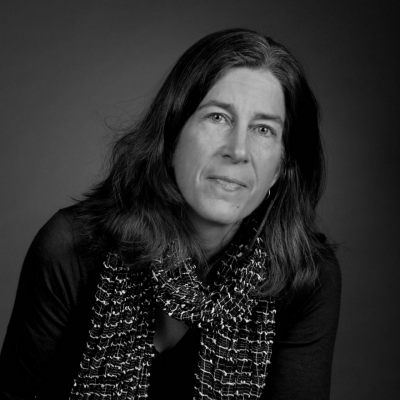
Sheila Kennedy
Founding Principal, KVA Matx
2017 Built Environment Jury Member
Sheila Kennedy is an American architect, innovator and educator. She is a founding Principal of KVA Matx, an interdisciplinary practice that designs architecture, urbanism and resilient infrastructure for emerging public needs www.kvarch.net. Designated as one of Fast Company’s emerging Masters of Design, Kennedy is described as an “insightful and original thinker who is designing new ways of working, learning, leading and innovating”. Kennedy is the 2015 recipient of the Rupp Prize, the 2014 Design Innovator Award and is the 2016 recipient with SELCO India of an Inventing Green grant from the Lemulson Foundation. Kennedy is Professor of the Practice of Architecture at the Massachusetts Institute of Technology.
Kennedy directs KVA’s material research division MATx which works with industry leaders, universities and public agencies to explore new applications for natural and emerging materials. Kennedy’s work focuses on the design of public space and next generation resilient infrastructure in networked cities and urbanizing regions. MATx has developed designs for Dupont, Siemens, Osram, Herman Miller, 3M, The North Face, the United States Department of Energy, Volkswagen “Think Blue” and the green Electrical Utility Company of Portugal in Brazil. The KVA MATx Portable Light Project, a non-profit global initiative to create energy harvesting textiles in the developing world has been recognized with a 2012 Energy Globe Award, a 2009 US Congressional Recognition Award, the 2009 and 2012 Energy Globe Awards and a 2008 Tech Museum Laureate Award for technology that benefits humanity.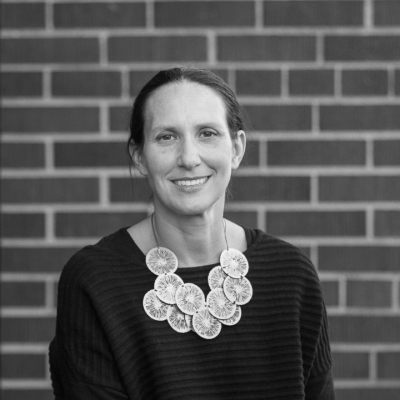
Lola Sheppard
Co-founder, Lateral Office
2017 Built Environment Jury Captain
Lola Sheppard received her B.Arch from McGill University and M.Arch from Harvard Graduate School of Design. She is Associate Professor at the University of Waterloo. Together with Mason White, she founded Lateral Office in 2003.
Lateral Office is an architecture practice that operates at the intersection of architecture, landscape, and urbanism. The studio describes its practice process as a commitment to design as a research vehicle to pose and respond to complex, urgent questions in the built environment, engaging in the wider context and climate of a project– social, ecological, or political. Lateral Office have been pursuing research and design work on the role of architecture in remote regions, particularly the North, for the past seven years. Lateral’s work tests the potential for architecture and infrastructure to be culturally responsive, geographically scalable, environmentally adaptable, and multi-purpose in its programmability.
The office’s work has been exhibited and lectured extensively across the USA, Canada and Europe. Lateral Office was awarded a Special Mention at the 2014 Venice Biennale for Architecture, a PA award in 2013 and the Holcim Gold for Sustainable Construction for North America, for their project Arctic Food Network. They received the Emerging Voices from the Architectural League of New York in 2011, and the 2010 Professional Prix de Rome from the Canada Council for the Arts. Lateral Office are the authors of the upcoming book Many Norths: Spatial Practice in a Polar Territory (Actar 2017) and of Pamphlet Architecture 30, COUPLING: Strategies for Infrastructural Opportunism, published by Princeton Architectural Press (2011). Sheppard and White are also co-editors of the journal Bracket.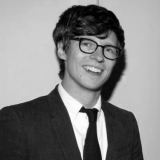
Will Hunter
Founding Director, London School of Architecture
2015 Built Environment Jury Member
Will is the deputy editor of The Architectural Review, and is the founder of Alternative Routes of Architecture (ARFA), a think-tank exploring alternative educational models. He has previously been editor of the monthly magazines of The Architects' Journal (AJ) and Building Design (BD). He has taught architecture at both London Metropolitan University and the Royal College of Art; at the latter as a design unit master and chair of the architecture school's public lecture program.Will has judged numerous competitions, including the Global Architecture Graduate Awards(chair) and the RIBA President's Medals dissertation prize 2013. He has recently completed a report for RIBA Building Futures, and is currently working on a monograph of Peter Salter's Walmer Yard project in West London (AA Publications).
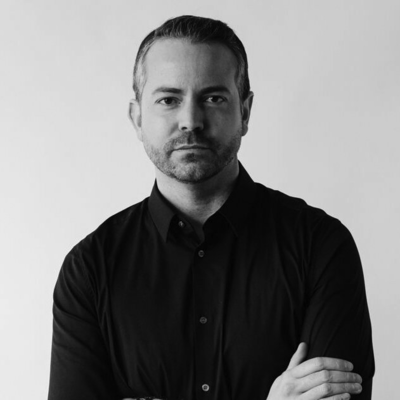
Marc Thorpe
Founder, Marc Thorpe Design
2018 Built Environment Jury Member
MARC THORPE DESIGN WAS FOUNDED IN 2010 BY ARCHITECT AND INDUSTRIAL DESIGNER MARC THORPE. THORPE IS KNOWN INTERNATIONALLY FOR HIS INNOVATIVE AND DYNAMIC WORK, TAKING A RIGOROUS APPROACH TO THE INTEGRATION OF ARCHITECTURE, DESIGN AND TECHNOLOGY. THORPE AND HIS TEAM COLLABORATE WITH CLIENTS TO DEVELOP AND EXECUTE BRAND GROWTH STRATEGIES. THE STUDIO CONCEPTUALIZES DESIGN WHILE BUILDING BRANDS, AND HAS THE RESOURCES TO PRODUCE CONSISTENT COMMUNICATION PLATFORMS, INCLUDE ARCHITECTURE, INTERIOR DESIGN, DIGITAL MEDIA, GRAPHIC DESIGN, FURNITURE DESIGN, PRODUCT DESIGN, RETAIL AND EXHIBIT DESIGN.
THE STUDIO DESIGNS RELATIONSHIPS. THE FOCUS OF MARC THORPE DESIGN IS IN THE SYSTEMIC INTERSECTIONS A PROJECT PRESENTS. IN ORDER TO DISCOVER A PROJECT’S POTENTIAL, THE STUDIO WORKS CLOSELY WITH CLIENTS AND COLLABORATORS TO FOSTER NEW IDEAS, ESTABLISH COMMON VISION AND INNOVATIVE STRATEGIES OF APPROACH TO NURTURE THE DESIGN PROCESS. THE RESULTS ARE DESIGN SOLUTIONS WITH THE HIGHEST DEGREE OF PRECISION, QUALITY AND CHARACTER.
THE STUDIO OFFERS ITSELF AS AN OPEN SYSTEM OF EXCHANGE. THORPE HAS DEDICATED THE STUDIO TO THE RESEARCH, PROFESSIONAL PRACTICE AND EDUCATION OF SYSTEMS THINKING THROUGH THE DISCIPLINE OF ARCHITECTURE AND DESIGN. THORPE STATES, “WE BELIEVE IN A HOLISTIC DESIGN APPROACH, WHICH ENGAGES THE SOCIAL COMPONENTS OF SPACE AND FORM.” COLLABORATIONS WITH DIGITAL ARTISTS, INTERACTIVE DESIGNERS, NEW MEDIA DESIGNERS, SOUND AND LIGHTING ENGINEERS AND SOCIAL MEDIA EXPERTS HAVE ADVANCED THE PRACTICE’S DIVERSITY AND KNOWLEDGE.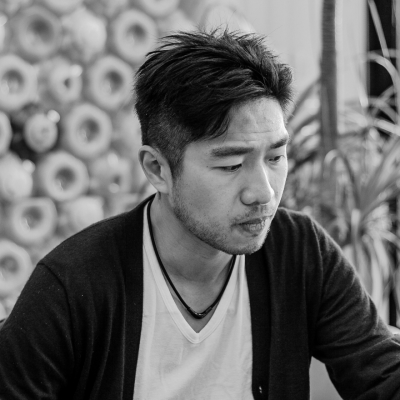
Arthur Huang
Co-Founder/CEO, MINIWIZ
2016 Built Environment Jury Captain
Arthur Huang is a structural engineer, architect and innovator of loop economy building material solutions. He founded Miniwiz in 2005 and has led the firm since.
Miniwiz is a global leader in post-consumer recycling technology with applications focused around built infrastructure and architectural solutions. For over 10 years, Miniwiz has been challenging the existing linear supply chain by using post-consumer recycled materials for high performance applications, retail store interiors, factory campuses and consumer goods.
Miniwiz gained recognition worldwide for first executing upcycling technologies and developing solutions that enable the switch to the circular economy. Three National Geographic Channel Episodes have been dedicated to Miniwiz , documenting the following Miniwiz Projects: The Ecoark Museum, the worlds first nine story tall museum made form post-consumer Materials (2010), Polliboat (2011), SDTI electronic waste recycling campus (2015). Miniwiz brought trash materials to the retail industry, equipping Nike’s high-end stores (Nikelab) with fixtures made from trash, in the heart of the world’s most premium cities: NYC, London, Paris, Milan, Shanghai, Hong Kong and Tokyo.
Among other honors, Miniwiz under Arthur Huang’s leadership won the Financial Times’ “Earth Award” in 2010 and The Wall Street Journal’s “Asian Innovation Award” in 2011. Miniwiz received the “Technology Pioneers 2015” title by the World Economic Forum, recognizing the potential of the new industry that Miniwiz is leading and the positive impact of its activities on the state of the world.
Miniwiz holds invention patents and trademarks for various mechanical and chemical up-cycling technologies, including Polliber™, a composite made of reprocessed organic waste with recycled polymers, Natrilon™, a yarn made of recycled PET reinforced with Nano SiO2 from rice husk, Pollibrick™, a mechanical interlocking system, and many others.
Lesley Braxton
Principal, Perkins & Will
2020 Built Environment Jury Member
Having moved 8 times to 8 different states before the age of 17, Lesley learned at a young age to embrace change, optimism and the cultures of many. This influenced her path as an architect and interior designer to take a wide angle view and operate as generalist in a seemingly very specific world. She designs across higher education, science & technology and corporate markets, ultimately blending influences of each sector into the next. This blurring helps her bring clients bold ideas deeply rooted in place and project understanding. Lesley is the glue that holds complex teams together by bringing nationally recognized, award winning design leadership, and an empathetic, hands on approach.
Lesley is a frequent guest speaker and critic at local universities. She is also a dedicated mentor to many young women, helping them develop careers while giving her a deeper look into their cultures. Lesley also has a deep love for art and travels the world with her family drawing and painting; Both of her children held paint brushes before the ever holding a pencil.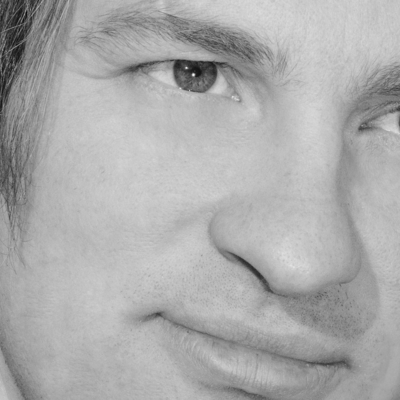
Archie LEE Coates IV
Co-Director, PLAYLAB, INC.
2019 Built Environment Jury Member
Archie Lee Coates IV is a co-founder and partner at PLAYLAB, INC., a New York based creative studio that uses art, architecture, and graphic design to initiate ideas around themes that interest them. Past projects include 30' inflatable flowers for Midtown Manhattan, a re-brand of America for SFMOMA and a compilation of all the times Joaquin Phoenix has walked in his films, titled Walking Phoenix. In 2011, he co-founded the quarterly publication CLOG, and in 2010 he co-founded + POOL, an initiative to build the world’s first water-filtering floating pool in New York with Family New York. Archie is also a thesis faculty at School of Visual Arts’ Design for Social Innovation program, where he teaches how to bring ideas to life.
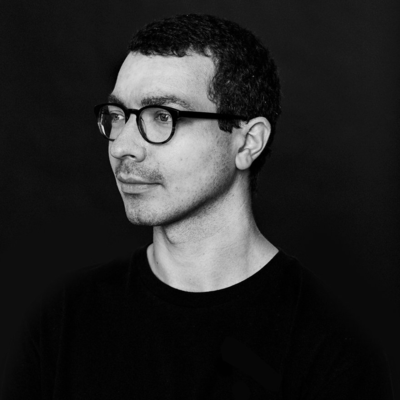
Jeffrey Franklin
Co-Director, PLAYLAB, INC.
2019 Built Environment Jury Member
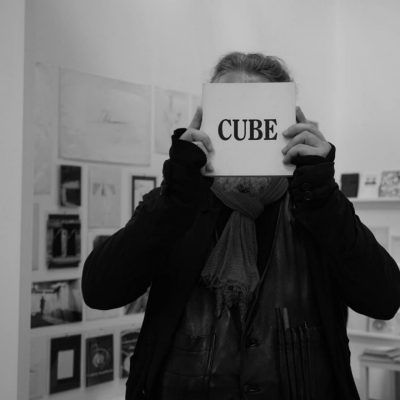
Giorgio de Mitri
Creative Director, Sartoria Comunicazione
2016 Built Environment Jury Member
Giorgio de Mitri is an italian creative director who founded Sartoria Comunicazione, one the most relevant independent communication firms woldwide. He is also the publisher of CUBE and the founder of Fondazione de Mitri, a nonprofit artistic and cultural organization located in Modena, Italy. Among other projects in 2015 he co-curated The Bridges of Graffiti exhibition, a collateral event of the 56th Venice Biennale.